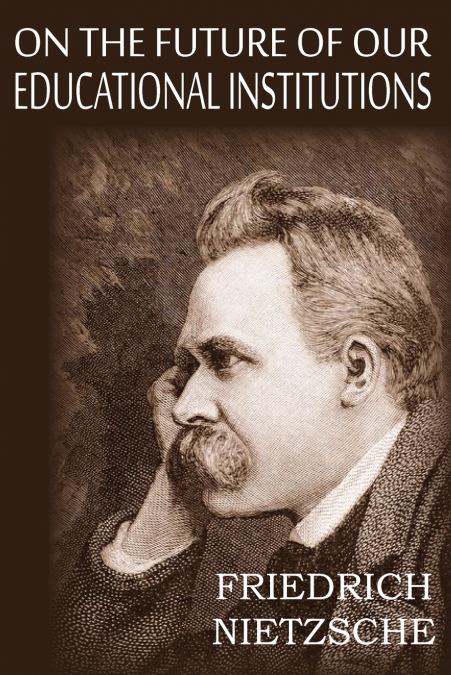
Friedrich Wilhelm Nietzsche / J. M. Kennedy
 Donde los libros
Donde los libros
 Librería 7artes
Librería 7artes
 Librería Elías (Asturias)
Librería Elías (Asturias)
 Librería Kolima (Madrid)
Librería Kolima (Madrid)
 Librería Proteo (Málaga)
Librería Proteo (Málaga)
This book is intended for calm readers,-for men who have not yet been drawn into the mad headlong rush of our hurry-skurrying age, and who do not experience any idolatrous delight in throwing themselves beneath its chariot-wheels. It is for men, therefore, who are not accustomed to estimate the value of everything according to the amount of time it either saves or wastes. In short, it is for the few. These, we believe, 'still have time.' Without any qualms of conscience they may improve the most fruitful and vigorous hours of their day in meditating on the future of our education; they may even believe when the evening has come that they have used their day in the most dignified and useful way, namely, in the meditatio generis futuri. No one among them has yet forgotten to think while reading a book; he still understands the secret of reading between the lines, and is indeed so generous in what he himself brings to his study, that he continues to reflect upon what he has read, perhaps long after he has laid the book aside. Friedrich Wilhelm Nietzsche was a 19th-century German philosopher, poet, composer and classical philologist. He wrote critical texts on religion, morality, contemporary culture, philosophy and science, displaying a fondness for metaphor, irony and aphorism. 3